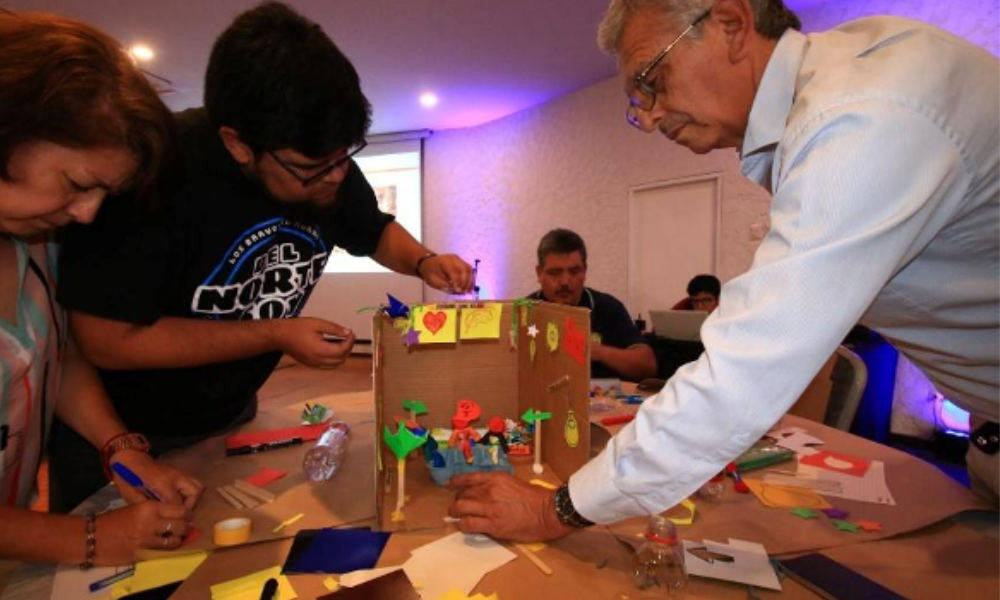The Chaka program, developed in the Region of Arica and Parinacota by SUMMA, the Laboratory for Research and Innovation in Education for Latin America and the Caribbean, in alliance with the Luksic Foundation, held the closing day of the year “Chaka: a community that learns”.
The meeting brought together teachers, directors and technical heads of the schools Padre Francisco Napolitano, Agrícola José Abelardo Núñez, Don Bosco, Miramar and Leonardo Da Vinci, where this pioneer program in Latin America is developed, which aims to improve the quality and equity of education through deep learning.
During the activity, which included group work spaces, the attendees reflected on the achievements reached in 2022 and reviewed, among other activities of this year, the five professional training cycles that were carried out and that addressed the topics of metacognition, dialogue and collaboration; formative feedback, Chaka Classroom and socio-emotional learning.
Rafael Carrasco, deputy director of SUMMA, commented that “it was an instance to recognize the enormous work and commitment of all the school communities in a year that has been very hard for everyone, due to the pandemic and the return to face-to-face classes”. Adding that “it is important to highlight the collaborative approach that has been carried out for the professional development of teachers in this learning community that is Chaka, working with the same principles that are used in the classroom: dialogue, metacognitive reflection, feedback and socio-emotional care”.
Looking to the future, the schools identified the challenges for 2023, focused mainly on strengthening the schools as communities that learn, dialogue and develop in an environment of mutual care; strengthening the work of accompaniment and feedback between classroom teachers and management teams; consolidating the foundations for the continuity of collaborative work logics; and deepening the installation of pedagogical practices based on deep understanding.
Macarena Avila, coordinator of Education Projects at the Luksic Foundation, said that “we have worked together with SUMMA to accompany the high schools in the challenges that this year brought with the return to face-to-face classes. The return to classes, added to the challenge of the educational communities to experiment in depth and be able to apply the basic elements of the program has not been easy, but on this day we were proud to see how each high school has soaked their classrooms with the elements proposed by Chaka, without neglecting the characteristics of their communities and students”.
For her part, Ema Llanos, a teacher at the Don Bosco School of Technology, emphasized that the teachers “have been the protagonists of the activity, which I liked very much”. Her words were echoed by Christopher Mancilla, a teacher from the Leonardo da Vinci School, who described the meeting as “a day to provide a great opportunity for the students to learn about their communities and their students”.

